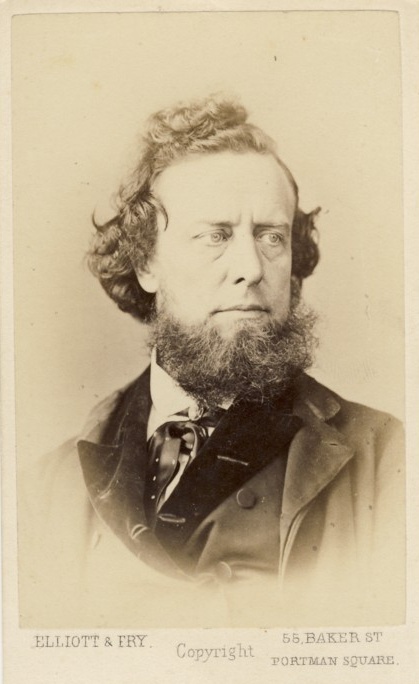|
Literary reviews by Gerald Massey
published in the:
(1) ATHENĈUM
The Athenĉum was a widely read literary and scientific periodical, published
between 1828 and 1923. It grew to become one of the most influential periodicals
of the Victorian period ― eventually metamorphosing into The New Statesman
― and is regarded by historians as a mirror of its times, containing reviews,
articles, essays, reports of learnèd societies and news from the scientific and
political worlds.
As was the convention at the time, reviews were published anonymously; however,
City University, London, holds the original editors' marked copies of the bound
volumes, making it possible to determine the identity of the anonymous
contributors, many of whom were well-known literary figures of the day including Massey,
some of whose reviews we have reproduced below (see text box).
For further information see the Athenĉum
Project at City University, London, UK.
|
Massey's literary reviews for the Athenĉum:
|
|
 |
|
WILLIAM HEPWORTH
DIXON
(1821-79).
Carte-de-visite
ca. 1868. |
William Hepworth Dixon, Editor of the Athenĉum (1853-69), was instrumental in first bringing the twenty-six year
old Massey to public attention. In his review of
The Ballad of Babe Christabel: together with other Lyrical Poems,
Dixon expressed his opinion of Massey thus......
"...A man whose ear though not yet
tuned to the complete and glorious harmonies of our English tongue is
sensitive to rhythm . . . whose imagination throws out images in sonorous
words . . . so that sound and image seem identical... He is a true poet,
but he has grievous defects ... he lacks culture. He requires taste. His
ear is defective. (Yet), our workman-poet has become a teacher to his
class. He speaks to them in passion - counsels, exhorts, inspires them
with his own vehement and vigorous spirit ... many a line suggests - and
many an image vivifies - the idea of a vast social revolution as that
which appears to him the natural and inevitable path of issue into a
better state."
Dixon was later to offer Massey much
needed employment as a literary critic to the Journal.
Historian and traveller, born near Manchester, Dixon moved to London in
1846 where he became connected with The Daily News for which he
wrote articles on social and prison reform. In 1850 he published
"John Howard and the Prison World of Europe", which had a wide
circulation, and in 1851 wrote a "Life of Peace" in answer to Macaulay's
onslaught. Lives of Admiral Blake and Lord Bacon followed, which
received somewhat severe criticisms at the hands of competent authorities.
Besides editing The Athenĉum, Dixon wrote many books of
travel, including "The Holy Land" (1865), "New America" (1867), and "Free
Russia" (1870). His later historical works include "Her Majesty's
Tower", and "The History of Two Queens" (Catherine of Arragon and Anne
Boleyn). Though a diligent student of original authorities, and
sometimes successful in throwing fresh light on his subjects, Dixon was
not always accurate, and thus laid himself open to criticism; and his
book, "Spiritual Wives", treating of Mormonism, was so adversely
criticised as to lead to an action. He wrote, however, in a fresh and
interesting style. He also served in public office as a deputy
commissioner for the Great Exhibition 1851, Justice of the Peace for
Middlesex and Westminster, was one of the founders of the Palestine
Exploration Fund, and was a member of the first School Board for London
(1870). Dixon was called to the Bar in 1854, but never practised.
|
Reviews of Massey's work by Hepworth Dixon:
|
_________________
(2) THE EDINBURGH NEWS
Early in 1855 Massey moved to
Edinburgh, where he took up an editorial position on the Edinburgh News.
However, by 1858 increasing competition between the Edinburgh
newspapers forced the proprietor to reduce his expenses. Massey was
made redundant and returned to England with his family.
Tennyson's
New Volume of Poetry (July 1855).
_________________
(3) Lucifer, Vol. I, November 1887.
An essay-like review by Massey of The Blood-Covenant, a Primitive Rite, and
its bearings on Scripture, by H. Clay Turnbull, DD. (London, Redway, 1887). |
